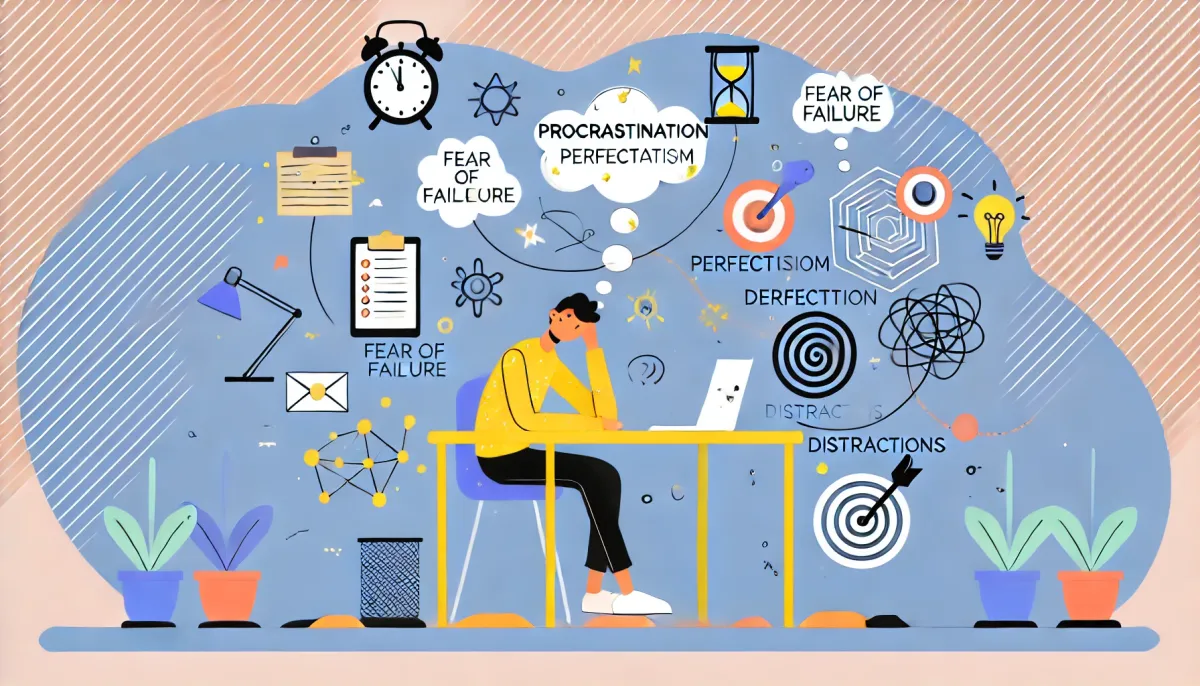Why Do We Procrastinate? Understanding the Psychology Behind Delay
Unravelling the Hidden Reasons Behind Procrastination and How to Beat It

Have you ever found yourself putting off a task, even when you know it’s important? You’re not alone. Procrastination is a common struggle that affects everyone, from students to professionals. But why do we procrastinate, and what’s really happening in our minds when we delay? In this newsletter, we dive into the fascinating psychology behind procrastination and explore practical strategies to overcome it.
Understanding Procrastination: It's More Than Just Laziness
Contrary to popular belief, procrastination isn’t just about being lazy or disorganized. It’s a complex behavior rooted in our psychological makeup. At its core, procrastination is an emotional management problem, not a time management one. Here are some of the key psychological factors that drive procrastination:
Fear of Failure: Often, we delay tasks because we’re afraid we won’t succeed. This fear can be paralyzing, leading us to avoid starting altogether. By not starting, we avoid the potential of failing.
Perfectionism: The desire to do something perfectly can be a major barrier. Perfectionists often procrastinate because they set unrealistically high standards and fear that they won't be able to meet them.
Task Aversion: When we find a task boring, difficult, or unpleasant, our brain seeks to avoid it. We’re naturally wired to seek pleasure and avoid pain, which can lead to putting off tasks we don’t enjoy.
Immediate Gratification: The human brain is hardwired to prioritize immediate rewards over long-term gains. This is known as “present bias,” and it’s why we might binge-watch a series instead of working on a project due next week.
Lack of Motivation: Without a clear connection to the value or purpose of a task, our motivation can dwindle. When tasks seem irrelevant or lack personal significance, it’s harder to find the drive to start.
How to Overcome Procrastination: Practical Tips
Understanding why we procrastinate is the first step toward overcoming it. Here are some strategies to help you take control and get things done:
- Break It Down: Large tasks can feel overwhelming, which leads to avoidance. Break your work into smaller, manageable steps. This makes it easier to start and keeps you motivated as you make progress.
- Set Clear Goals: Define what you want to achieve and set specific, realistic goals. Clear goals provide direction and make it easier to stay on track.
- Create a Reward System: Use rewards to motivate yourself. Promise yourself a small treat or break once you complete a task. This leverages your brain’s desire for immediate gratification to your advantage.
- Change Your Environment: Your environment plays a crucial role in your productivity. Minimize distractions and create a workspace that promotes focus.
- Practice Self-Compassion: Be kind to yourself when you do procrastinate. Self-criticism can increase stress and lead to more procrastination. Instead, acknowledge the challenge and commit to doing better next time.
- Use the Two-Minute Rule: If a task will take less than two minutes, do it immediately. This simple strategy can help you tackle small tasks right away, reducing your overall workload.
- Visualize Success: Imagine the positive outcomes of completing your tasks. Visualization can help increase motivation by reminding you of the benefits and satisfaction that come with getting things done.
Final Thoughts: Procrastination is a Habit That Can Be Changed
Procrastination is a habit rooted in psychology, but with awareness and effort, it’s a habit that can be changed. By understanding the underlying reasons for delay and applying practical strategies, you can break free from the cycle of procrastination and start achieving your goals more effectively.
Thank you for reading! We hope these insights help you tackle procrastination with a new perspective. If you found this newsletter helpful, feel free to share it with others who might benefit.
You May Also like :
- How to Spot Fake Nice People: Key Signs and Red Flags to Watch For
- What Your Face Reveals About Your Personality and Emotions
- How Do I Know If I’m in a Relationship with a Narcissist? Signs, Symptoms, and What to Do
- Does a Narcissist Know They Are a Narcissist? Understanding Narcissistic Awareness
- 10 Mind-Blowing Facts About Social Psychology You Need to Know
Valid Laws is a reader-supported publication. To receive new posts and support my work, consider becoming a free or paid subscriber.
Thanks for reading Valid Laws! This post is public so feel free to share it.



